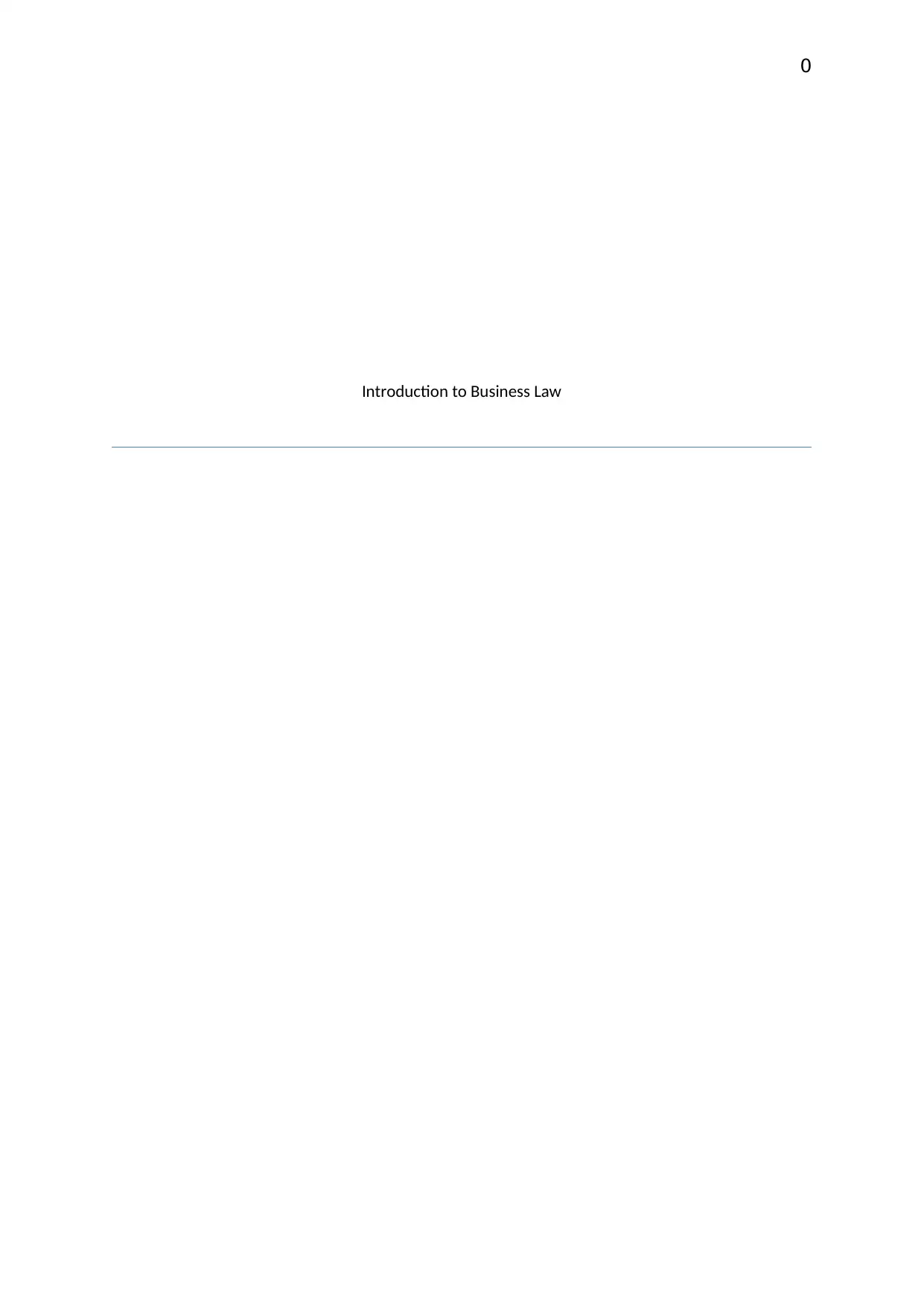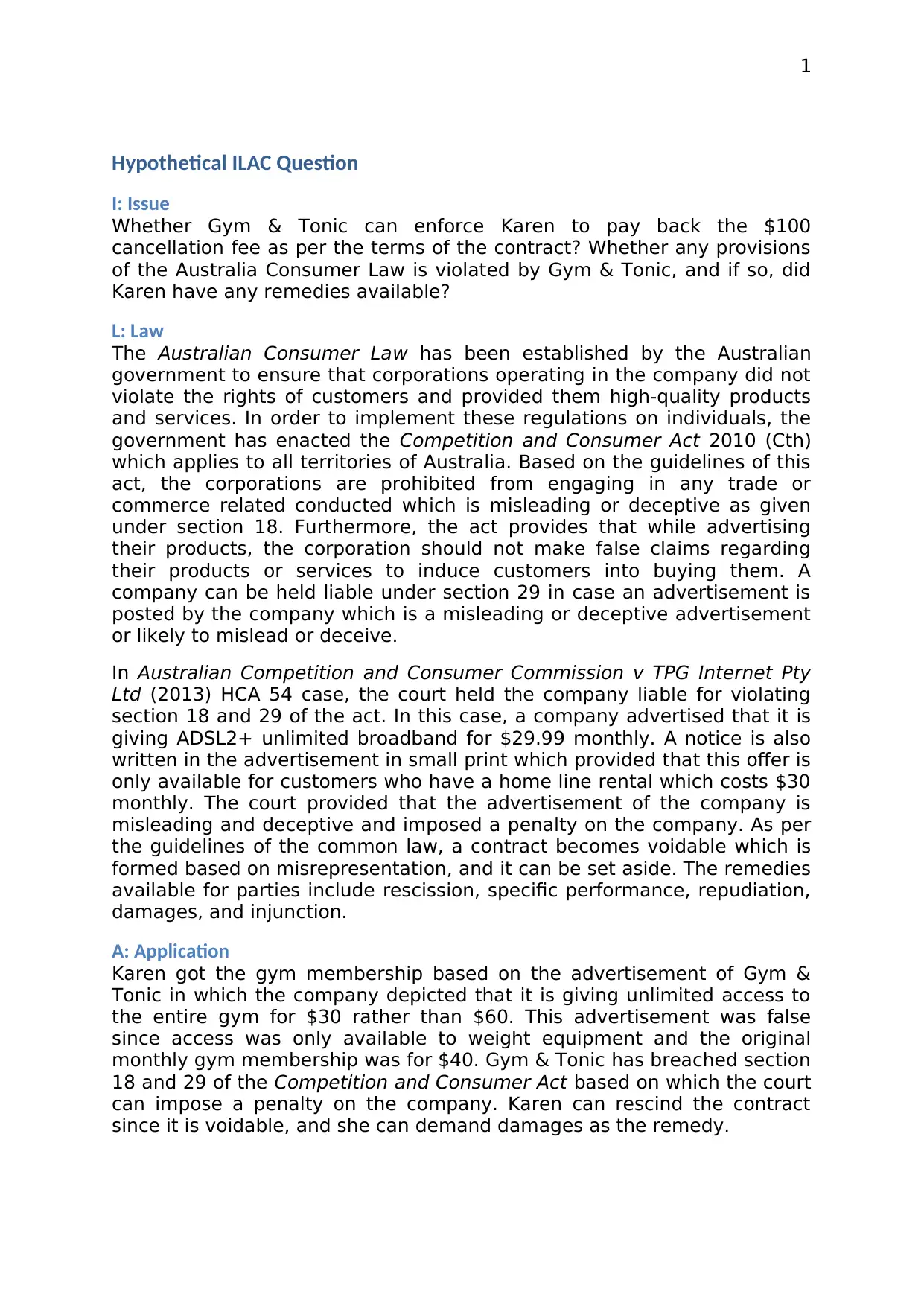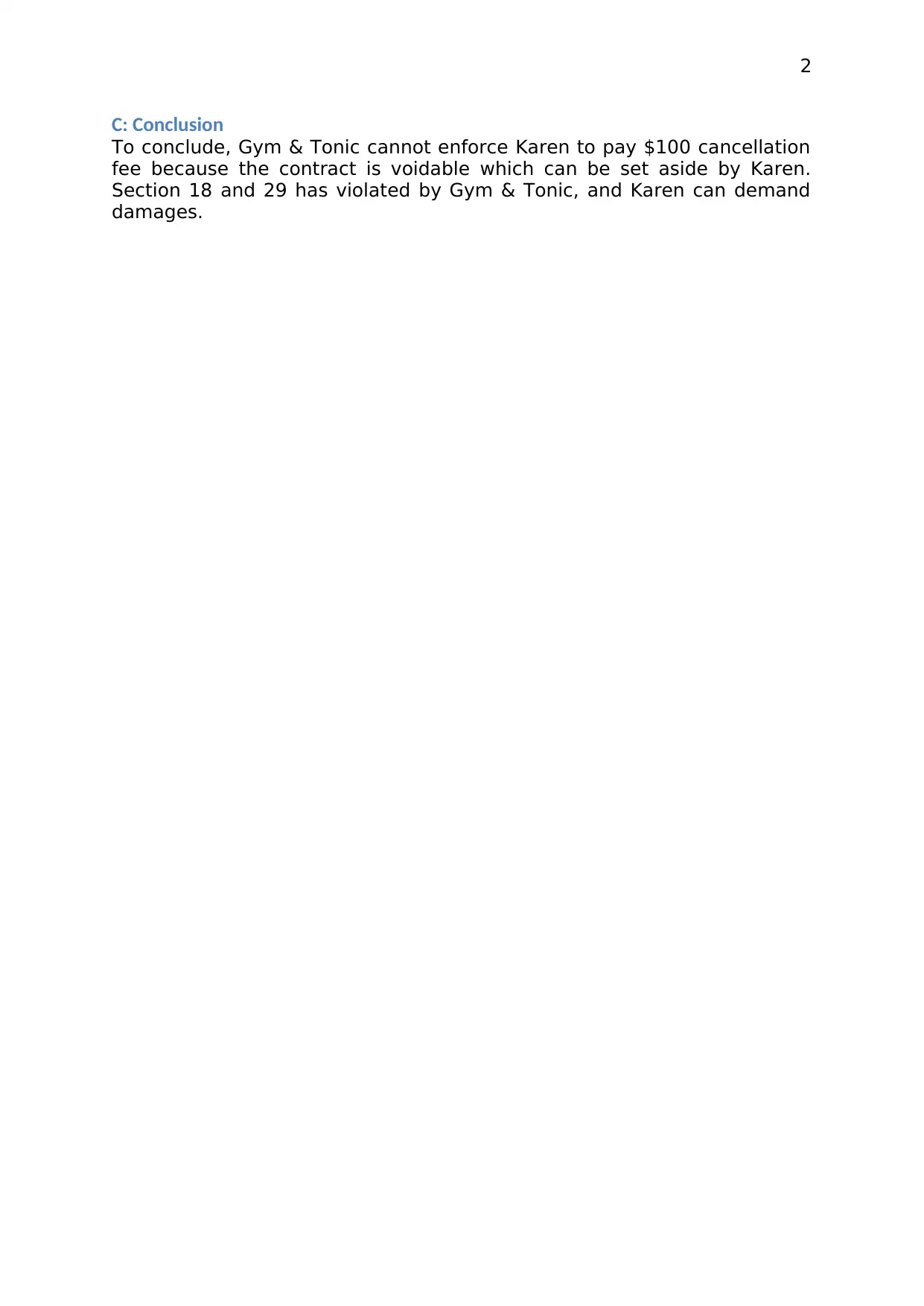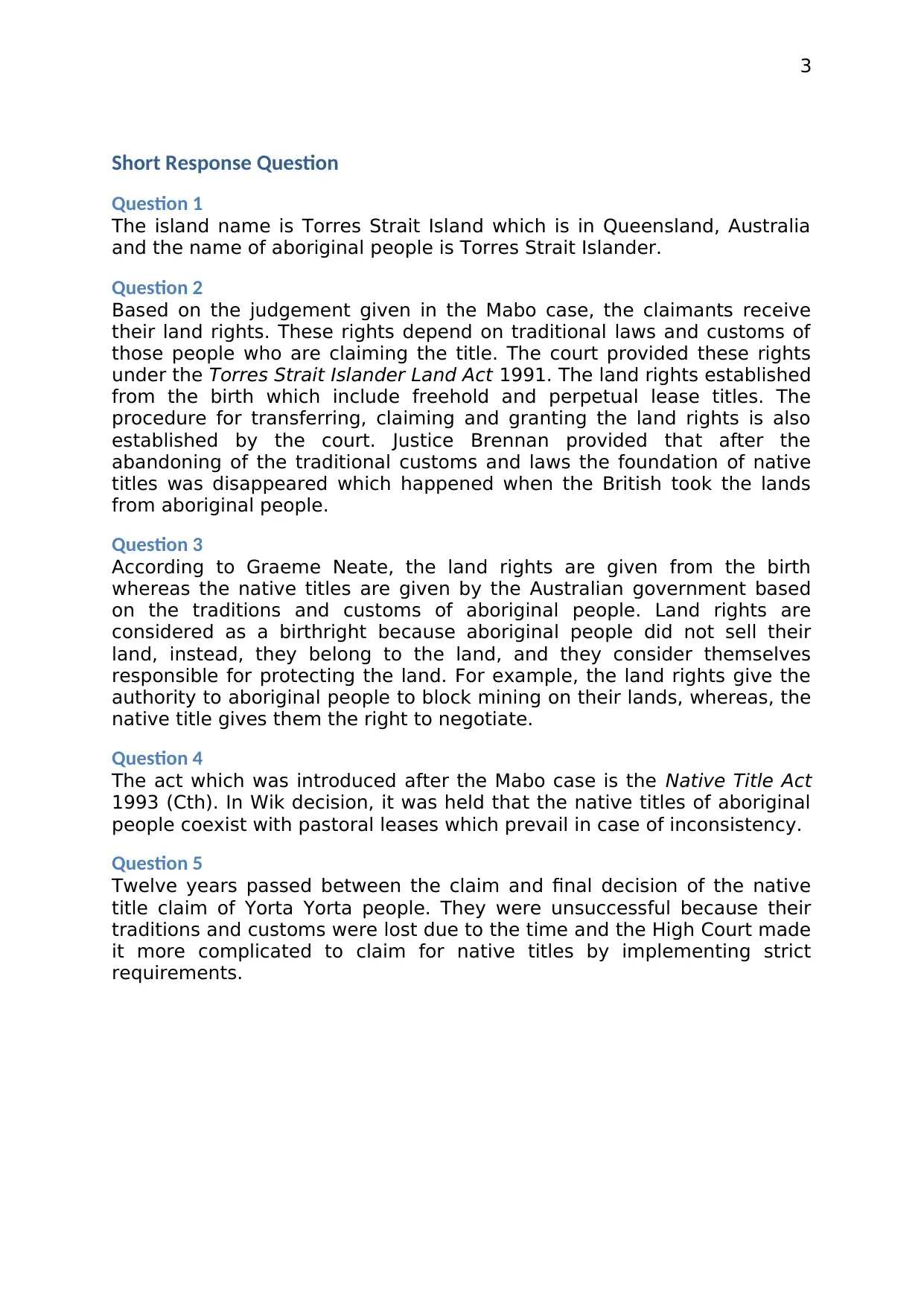Introduction to Business Law Assignment - Semester 1, 2024
VerifiedAdded on 2023/06/06
|4
|877
|339
Homework Assignment
AI Summary
This business law assignment presents a comprehensive analysis of legal concepts, starting with an ILAC (Issue, Law, Application, Conclusion) analysis of a hypothetical case involving a gym membership and potential violations of the Australian Consumer Law. The assignment examines misleading advertising and deceptive conduct, referencing relevant sections of the Competition and Consumer Act 2010 (Cth) and the case of Australian Competition and Consumer Commission v TPG Internet Pty Ltd (2013). It then delves into short-answer questions, exploring topics such as the Torres Strait Islands, the Mabo case and land rights, the distinction between land rights and native titles, the Native Title Act 1993 (Cth), and the Wik decision, providing a thorough understanding of these key legal principles. The assignment offers a practical application of legal concepts and provides insights into consumer protection and indigenous land rights in Australia.
1 out of 4










![[object Object]](/_next/static/media/star-bottom.7253800d.svg)